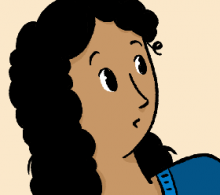When we talk about abuse, we mean any violent or abusive behaviour that happens during a relationship or after it ends. On this page, we use the word partner to mean the person:
- you are or were married to,
- you live or lived with in a marriage-like relationship (you might call it a common-law relationship), or
- you have a child with.
Abuse can be:
- physical
- emotional
- verbal (spoken)
- psychological
- sexual
- financial
In a relationship, an abuser uses threats and violence to get power and control over their partner. Often the abuser blames the victim for the abuse.
Here are some examples of abuse in relationships.
Physical abuse is when your partner:
- stops you from leaving your home;
- breaks your things, damages property, or threatens to damage something that you value;
- shoves, slaps, chokes, punches, or kicks you; or
- threatens or hurts you with a weapon or an object.
Emotional or verbal abuse is when your partner:
- embarrasses you, yells at you, insults you, or calls you bad names;
- constantly criticizes you and blames you for everything;
- doesn't let you contact friends and family;
- threatens to have you deported; or
- accuses you of having or wanting to have sex with someone else.
Psychological abuse is when your partner:
- decides what you can do or know about, where you can go, or who you can see;
- opens and reads your mail or other private papers;
- follows or watches you wherever you are, or keeps track of your phone calls;
- phones, texts, or emails you over and over; or
- threatens to hurt you, your children, friends, or pet.
Sexual abuse is when your partner:
- forces you to have sex when you don't want to,
- forces you to perform sexual acts that make you uncomfortable or hurt you, or
- injures sexual parts of your body without your agreement.
Financial abuse is when your partner:
- makes all the household money decisions and doesn't let you have any money,
- doesn't let you use bank accounts or credit cards,
- doesn't let you get a job or makes you lose your job, or
- runs up debts in your name.
Abuse can also be emotional, physical, or sexual harm to your children. For example, if your partner threatens to kidnap your children or threatens to use the courts to take your children away from you, that's abuse.
Even if you leave an abusive partner, the abuse can carry on. For example:
- your abuser might threaten to take you to court to make you do what they want, or
- they might keep taking you to court or trying to take you to court, or
- they might not pay child support as the court ordered.
Abuse that's against the law
Certain types of abuse are against the law and are crimes.
Physical and sexual assault and criminal harassment are both crimes.
- Physical assault is when your partner:
- hits or hurts you, or
- threatens to hit or hurt you, and
- you believe that they can and will do this.
- Sexual assault is when anything sexual happens to you without your agreement. This includes:
- unwanted kissing,
- unwanted sexual touching, and
- forced sexual intercourse (rape).
- Criminal harassment (sometimes called stalking) is when your partner forces unwanted and continuing attention on you and makes you afraid for yourself and your children. For example:
- they follow you;
- they turn up at places if they know you're likely to be there; or
- they phone, text, or email you all the time, even if you've asked them to stop.
But you might stay with an abusive partner
People stay with an abusive partner for many reasons. For example:
- You might be a victim of a cycle of violence. This means you're caught in a pattern of violence. For example, your partner is violent but then acts differently and makes you both think the abuse will end, but it happens all over again. After the violent event, your partner:
- might be very sorry,
- might promise that it won't happen again, and
- might be very loving and attentive.
- You feel you're financially dependent on the abuser, especially if you have a disability.
- You're afraid for your children's safety.
- You're afraid of losing your home.
- You think that no one will believe you.
- You have no social supports because you don't have contact with your family and friends.
- You don't know about your legal rights or support services that can help you.
- You're afraid of losing your immigration status.
- You don't speak English well and think you won't be understood.
- You feel pressured by your community not to report the abuse.
- You feel isolated because you're a newcomer to Canada.
You can get help
If you're in an abusive relationship, you might feel ashamed, afraid, or alone.
You can get help for yourself and your children, whether you want to stay in the relationship or leave. There are support services and trained people who can help you all over BC.
If you're being assaulted or criminally harassed:
- Call 911 or the number for the emergency police or RCMP.
- If you don't feel able to speak in English, say "I need an interpreter, please" when you call 911.
The police can help you:
- when abuse is happening, or
- after it has happened.
For more information about getting legal and other help, see:
Tia recognizes she's in an abusive relationship in our short illustrated story, When behaviour is abuse.

